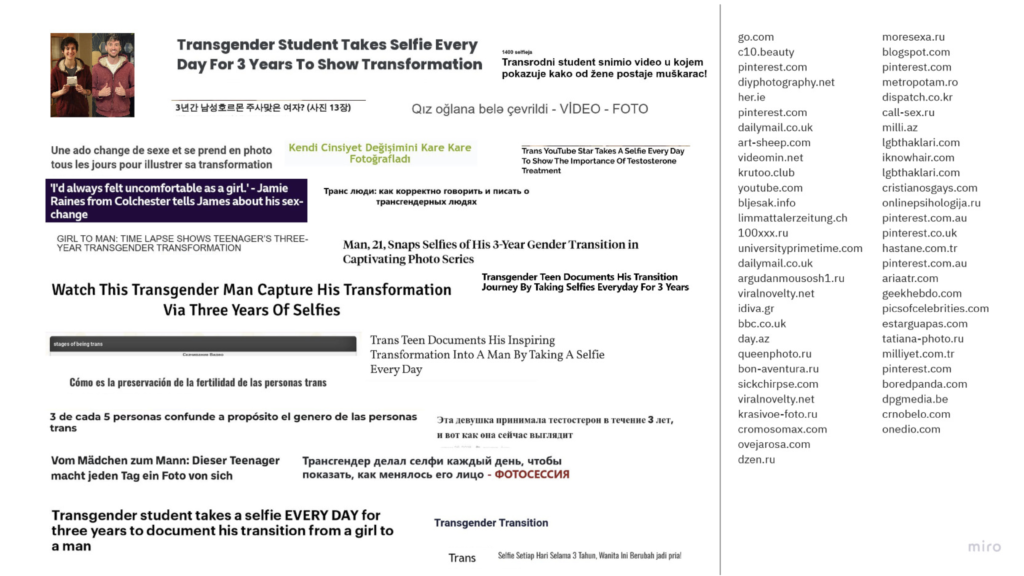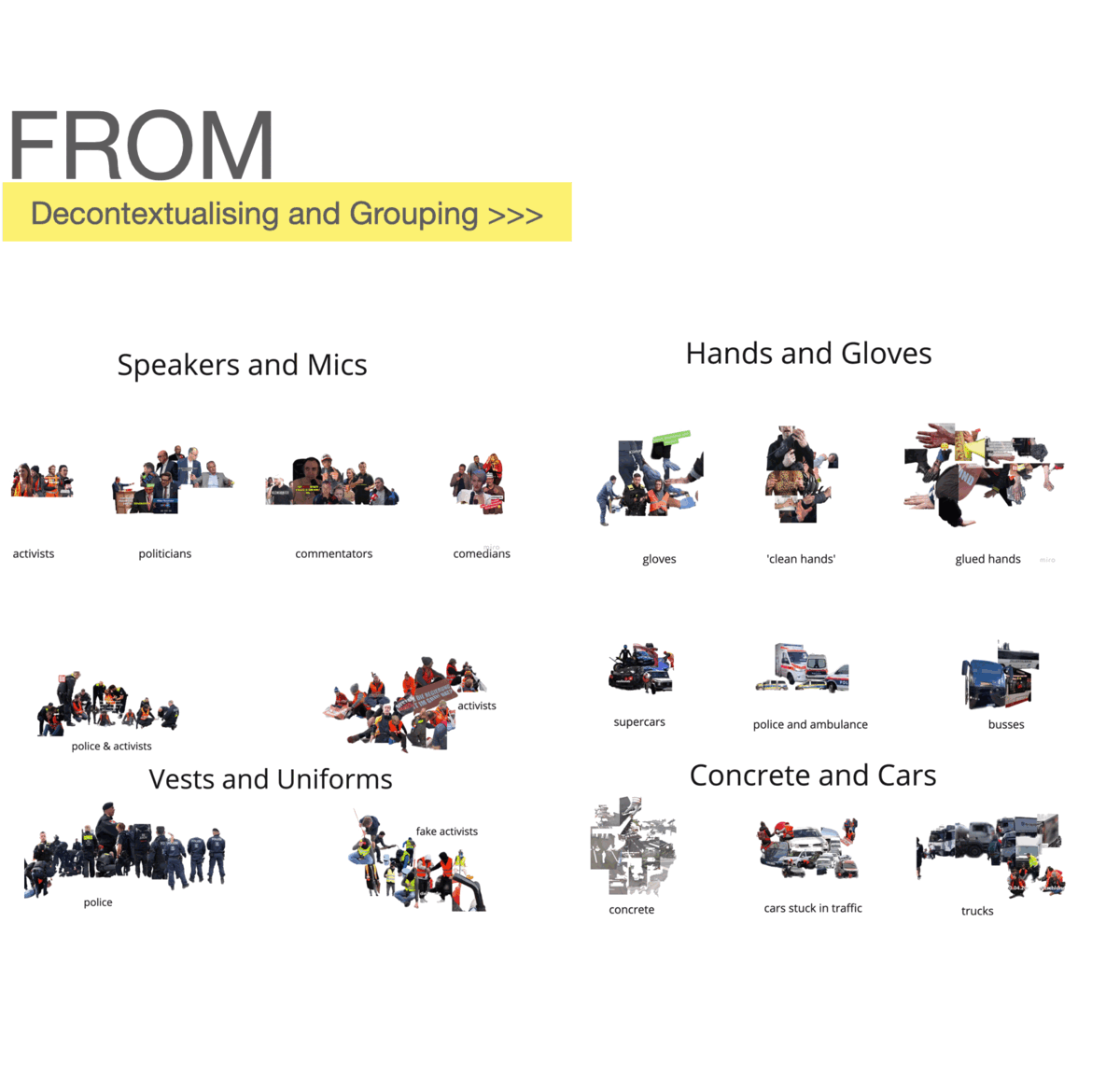Summer School „More Than Data: Positionality and Situatedness in Digital Research“
During the summer school “More Than Data: Positionality and Situatedness in Digital Research”, two groups contributed to the practical tracks: “Mapping the Misappropriation of Images of Transbodies” and “#letztegeneration meets #klimakleber: Mapping TikTok Imaginaries of Climate Activism and Climate Change Denial”.
With facilitators Aikaterini Mniestri, Elena Pilipets, and Julia Bee, contributors (Lisa Weging, Mace Ojala, Janine Hagemeister, Monika Brenner-Skazedonig, Sara Messelaar Hammerschmidt, Meike Hein, Annika Kiehl, Marcus Burkhardt and Gabriele Colombo) explored questions of positionality in the process of obtaining, visualizing, and interpreting online-ethnographic and visual platform data.
The week of explorations opened with a welcome address by Carolin Gerlitz and a keynote by Gabriele Colombo titled “Unfolding data: lists, catalogues, supercuts, and other visual formats for digital research.” In addition, a workshop by Jason Chao and Elena Pilipets, “Memespector: Web Detection and the Multi-Situatedness of the Digital Image,” introduced participants to different methods of contextualizing image collections.
The first group, “Mapping Misappropriation”, used a mix of quantitative and qualitative methods to explore the misappropriation of the images of trans content creators across the internet. The main results confirmed the initial hypothesis that the images published by trans content creators on their public accounts have been misappropriated to different ends.

The project’s main results indicate the presence of these images on Russian adult sites and their resurgence in hate speech on platforms like 4chan. News articles with varying degrees of transphobia were collected and grouped based on their content. The project integrated web locations of these images into visualizations for better understanding. These findings emphasize the significance of this topic in new media and digital methods, calling for further examination of the misuse of images depicting minoritized bodies online.
The second group, “TikTok imaginaries”, explored a collection of 632 TikTok videos, focusing on the contemporary online imaginaries of climate activism and climate change denial. Using TikTok video metadata, participants worked with extracted video frames and associated co-hashtags, stickers, and sounds. AI-assisted speech-to-text conversion and computer vision-generated image annotations were employed to locate different forms of embodiment in TikTok performances. By removing background, de-contextualized human and nonhuman bodies ranging from microphones and vehicles to hands, gloves, uniforms, and safety vests were then re-contextualized and collectively re-arranged in collages.

Combining methods of ethical fabrication with feminist approaches, some social connections and power relations surfacing through data were re-imagined, while others remained intact in their linkages to one another and their TikTok-mediated contexts. Diverse positionalities, arising from TikTok performances and our research interventions, prompted us to critically assess the influence and ‘weight’ of affectively charged associations that stick onto activists‘ bodies. In de-constructing the hateful rhetoric of climate change deniers, ethical considerations arise. These include both avoiding the normative reproduction of systemic violence and the necessity to support activists’ agenda through inventive approaches that go beyond digital amplification.



